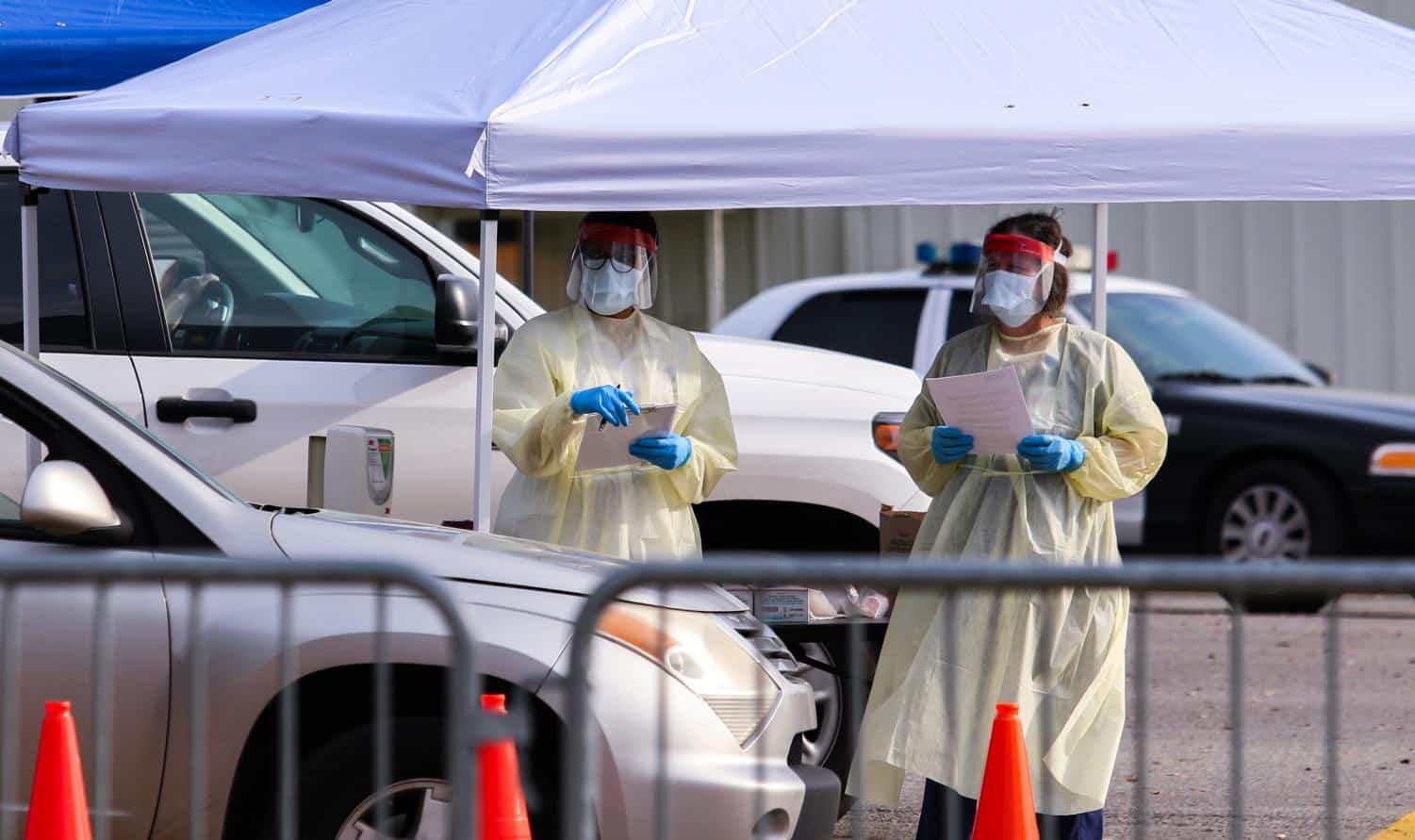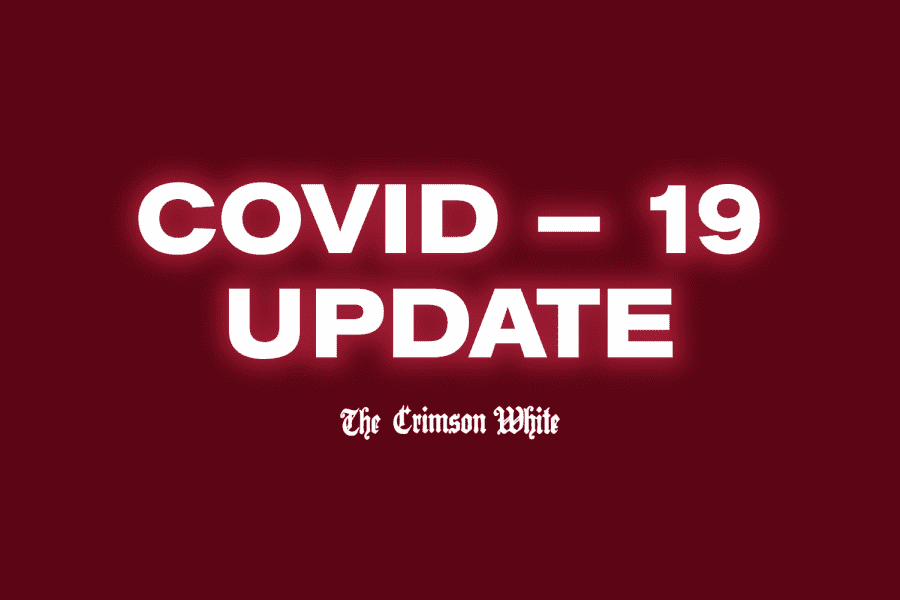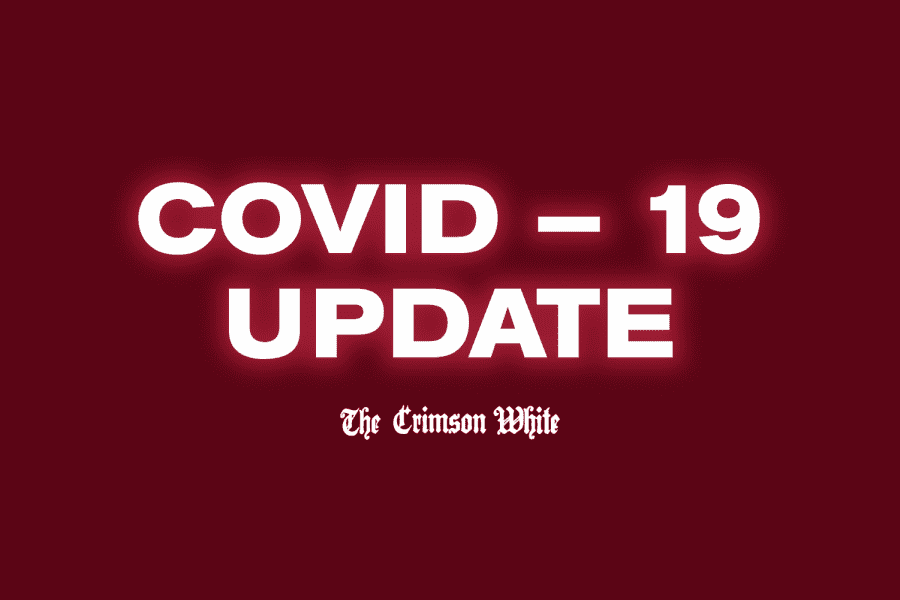The University of Alabama is no stranger to crisis. In the past academic year, we at the CW News Desk have witnessed ruptures in the administration, and, like many of you, we have waited for answers throughout the silence that followed.
This is another one of those moments.
As students complete their last day of a year full of uncertainty, we wanted to offer some clarity. Below you’ll find a birds-eye view of this year’s events, from key trends to unfinished business. And, while information is often hard to come by, we want to be clear about what we do and don’t know about the year ahead.
YEAR IN REVIEW
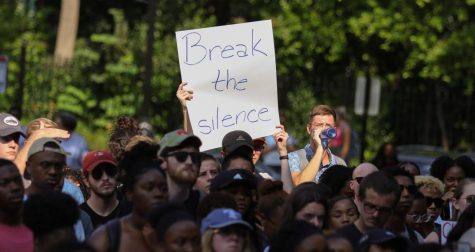
Student Life
In the summer, our team investigated ethical concerns against a candidate for the director of student media, which is a part of the UA Division of Student Life. Human Resources emails revealed that the candidate was hired, and then fired, shortly after the news broke.
This incident begged us to question the inner workings of search processes and administrative hires. But, we had no idea that this would be the first of many leadership changes in the year to come.
In the midst of this debacle, former vice president of student life, David Grady, had resigned after just four years in his position. Then, in September, we broke news that Jamie Riley, the former dean of students, had resigned on the same day his tweets resurfaced in a viral Breitbart story.
Only one month into the Fall semester, this campus had lost two top administrators. Then, just a week after Riley’s resignation, Provost Kevin Whitaker announced his plans to retire.
In the months that followed, students and faculty demanded that the University should prioritize diversity, equity and inclusion – values that were questioned after Riley, who is black, left his position after publicly voicing his distrust in the police and American nationalism. Among those requests was that the University should be more transparent in its hiring processes.
The response among administration so far has largely fallen to programming and educational initiatives rather than immediate institutional changes. The University did, however, answer the demand to make searches public. The following semester, the University held public candidate presentations for the next vice president of student life (VPSL). Starting this month, Myron Pope, a UA alumnus and a former student affairs administrator at the University of Central Oklahoma, will take over Grady’s role. Pope will be responsible for the hiring of a new dean of students, which is set to occur this summer.
But the turnover did not let up into the Spring semester. The search for the VPSL was finalized just as the vice president of strategic communications, Linda Bonnin, also hung her hat after four years on the job, making this year hold one of the highest turnover rates in the current administration. In each of past five years, at least one member of the senior leadership has resigned, announced retirement or switched roles – and the same goes for deans. Among current deans, less than half have outlasted UA President Stuart Bell’s five years in office, but only one – Charles Karr of the college of engineering – has held the position for more than 10 years.
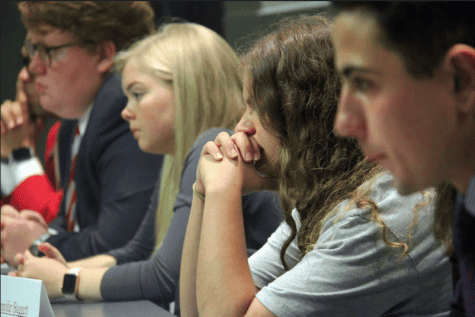
Student Government
Throughout administrative scandals, the UA Student Government Association (SGA) has often been a place that students have looked to for answers, or at least a response.
In October, the eyes of the nation were on the SGA after senators voted to remove Riley’s name from an act seeking affirmation of First Amendment rights. The vote raised concerns about a lack of diversity in the SGA – a trend that has historically been linked to the presence of the Machine, an underground society that has influenced SGA and local elections for nearly a century.
Since then, the SGA has taken steps to provide more diverse programming on campus, mainly under the leadership of Demarcus Joiner, the SGA’s former VP for Diversity, Equity and Inclusion.
After being the first to serve on the SGA’s newly formed DEI cabinet, Joiner was elected SGA president in early March and took office last month. But, Joiner’s uncontested campaign didn’t fail to raise eyebrows. In fact, this year marked one of the most under-contested SGA campaigns in CW history. Joiner never claimed he was an independent but denied any involvement in the Machine when interviewed by the CW editorial board.
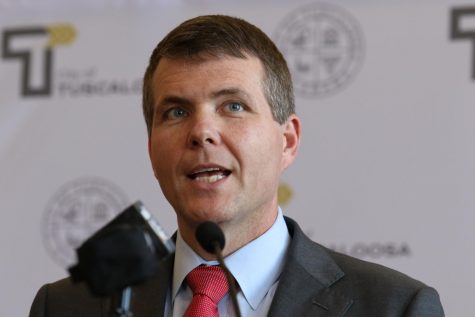
City Hall
Speaking of the Machine, in October, city hall reporters Grace Schepis and Zach Johnson covered a monumental city council election, in which an independent candidate won despite alleged Machine influence. Lee Busby, the newest District 4 council person, represents neighborhoods surrounding the University.
Schepis and Johnson have also tracked the progress of Elevate, a new initiative to bring more business and recreation to town. Now, however, the program is shifting gears. As the city regains its bearings after weeks in quarantine, Mayor Walt Maddox will look to Elevate to offset loss.
Maddox has been a key player in transmitting information on coronavirus case counts, economic standing and projections for the future. The University, however, has been slow to keep students informed.
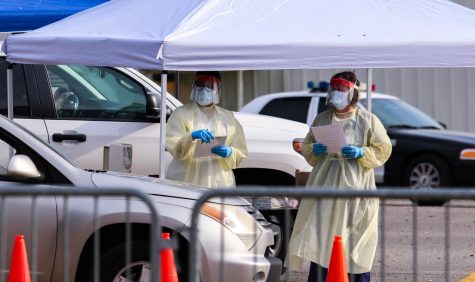
CORONAVIRUS AND THE ROAD AHEAD
COVID-19 Case Count
On April 3, UA officials confirmed four employees and three students had tested positive for the coronavirus. Though the rate of the spread has slowed significantly since late March, local data shows that daily cases continue to rise. By the time of publication, Tuscaloosa has 210 confirmed cases and two deaths, with only 2% of the county’s population receiving tests.
Reopening Tuscaloosa
Today, May 1, marks the first day under Gov. Kay Ivey’s “safer-at-home order,” which relaxes prior restrictions on travel and business closures due to COVID-19. Locally, Maddox aims to follow suit.
While the dates predicted for each phase of Tuscaloosa’s restoration are not set in stone, Maddox will work closely with health officials in hopes that nothing is done prematurely. The council will meet on May 4, 5, 11 and 12 to discuss the particulars of the plan to reopen Tuscaloosa, and the vote will take place on May 12.
Reopening the University
UA System Chancellor Finis St. John told AL.com on Tuesday that the System had every intention of reopening in the fall – and possibly the Summer II semester, but that is entirely dependent on whether COVID-19 continues to pose a threat to public health.
Back to Work: The University also announced that the school is ready to put employees back to work. Group 3 workers will be notified of their status next week. Summer I classes will be online only, and a decision regarding the status of Summer II classes will be made by the end of May.
Move-Out and Orientation: All campus tours, including Bama Bound orientation, will be held virtually this summer. Staggered move-out for residence halls and Greek chapters is scheduled to begin on Tuesday, May 5. To promote social distancing, students will sign up for a date and time for move-out.
Campus Safety: The UA System also launched a task force to make sure health and safety is a top priority when campuses reopen. Details on the task force have not been made public yet.
Student Government
In efforts to promote transparency, the SGA has implemented an initiative tracker, which will mark the progress of projects and legislation. SGA officials will also continue to use the Bama Asks portal to answer student questions related to campus affairs. And, for students in immediate need, they can access an emergency fund here, as well as other resources in our guide here.
Administrative Searches
While we wait for a new dean to be selected, the search for a provost nears its end. On Thursday, feedback forms closed on candidate presentations that were held over Zoom. A decision should be made this month.
We still don’t know the particulars of the search for the next dean of students. It was projected to occur this summer, pending the hiring of a new VPSL, so the decision will ultimately be up to Pope. It’s also unclear whether the search for a new VP of strategic communications is underway or whether it will be made public, but we will continue to provide updates if we learn anything new.
University Finances
As far as UA finances go, the University has implemented a number of procedures to buffer what could be a $40 to $50 million loss. According to a UA email, these include placing a hiring freeze on non-essential and vacant positions; reducing expenses related to facilities, energy and utilities; eliminating non-essential expenditures, supplies, services, travel, contracts and projects; delaying construction projects where possible; and suspending retirement funds like the 403(b) employer match for participating employees until Sept. 30, 2020.
On Thursday, April 30, UA President Stuart Bell provided updates to the CW about the ongoing process to secure and distribute the $20.8 million funding the University will receive from the CARES Act.
Although the University has not yet received the money, half of this sum will be distributed to students who demonstrate financial need. Bell said they are developing a system to identify these students.
We’ll have more on that in a story this weekend.
To stay up-to-date on UA and the coronavirus, visit thecrimsonwhite.com/coronavirus or follow us on Twitter @TheCrimsonWhite.



